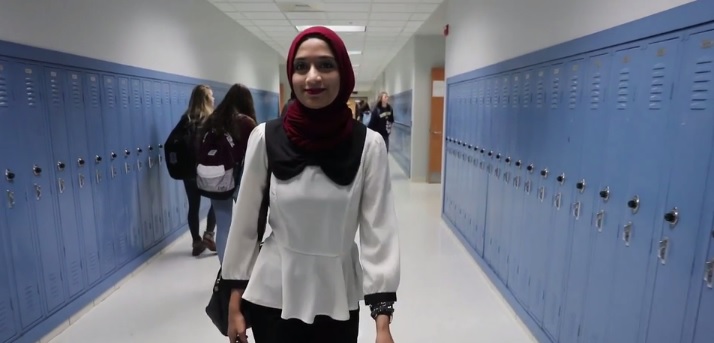From Chicago Tribune

Zainub Fiaz did her homework on Benedictine University before enrolling in the quiet institution in west suburban Lisle. She found out that its education major is rigorous and has affiliations with strong school districts in the area, two factors that impressed her.
“But then, coming here,” said Fiaz, a Muslim who is a senior at the university, “I’m just like, ‘Wow, there’s obviously so many Muslims.’ So, it’s super comforting.”
It also may come as a surprise to others that Benedictine, a Catholic institution in a suburban county that is 78 percent white and 86 percent Catholic or Protestant, may have the highest percentage of Muslim students of any Catholic university in the nation. As of last spring, 540 — or 24 percent — of the 2,250 undergraduate students at the Lisle campus who indicated a religious preference identified as Muslim, the school reported.
Benedictine President Michael S. Brophy said the number now may be 600, and other officials at the school said the level of Muslim students fluctuates between 20 and 30 percent at Benedictine. That percentage is rising and reflects a trend at other Catholic institutions of higher learning. It’s a result in part from the church’s effort to define its education as accepting all faiths in hopes of serving everyone in the search for what the president of the national Catholic association of universities called “transcendence and meaning.”
One of Benedictine’s latest measures to accommodate its growing Muslim student population occurred in July, when Brophy hired a Muslim faith adviser. Ali Yurtsever had been a math professor at Georgetown University — a Jesuit school — president of American Islamic College in Chicago and president of the Rumi Forum, a nonprofit based in Washington, D.C., that promotes interfaith and intercultural dialogue.
“I honestly think most people thought it was overdue,” Brophy said when asked if he had received pushback for planning the hire. He said Yurtsever is “worth his weight in gold,” for his ability to help Muslim students and the administration to serve those students. Welcoming Muslim students aligns with the Benedictine value “to welcome the stranger as if they were Christ,” Brophy said.
“Typically, we find they are very devout students,” he said, “not only to their faith, but to their studies.”






